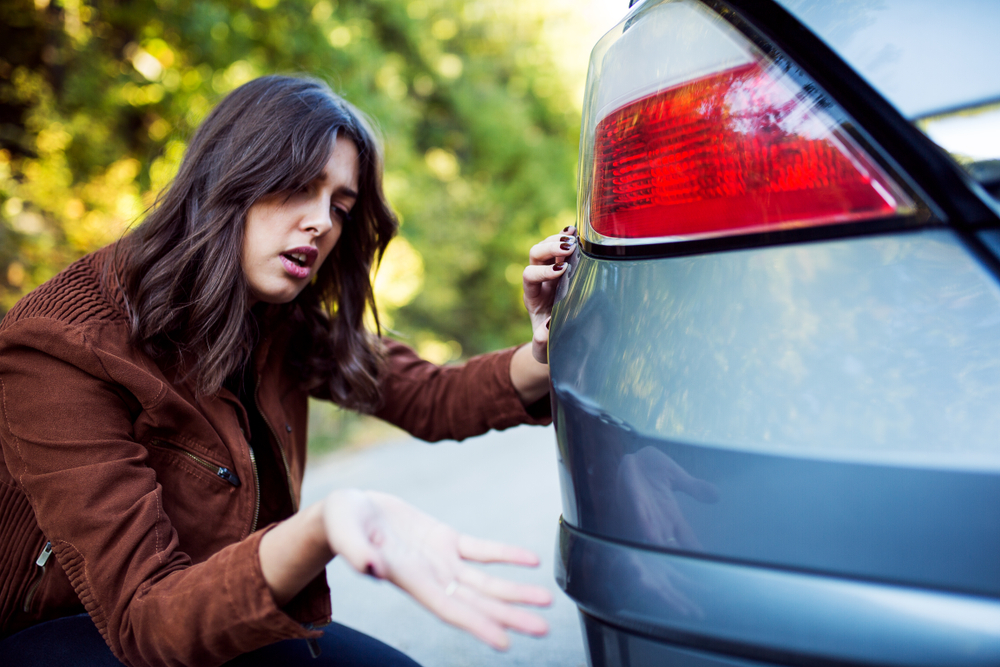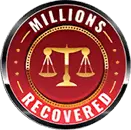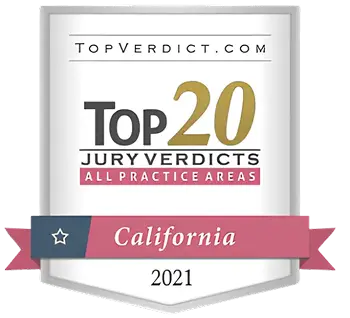If you were hurt in a car crash in California and later discovered that your insurance status might affect your claim, you’re not alone. Many accident victims only learn about California Proposition 213 after an insurer denies part of their recovery.
This law can have a significant impact on how much compensation you can receive after a car accident, especially if you were uninsured or driving under certain restricted conditions. Knowing what Prop 213 actually does can help you protect your rights and make informed decisions about your case.
At Compass Law Group, LLP, our Los Angeles personal injury attorneys have helped countless drivers navigate complex insurance rules like Prop 213. We believe in empowering you with clear, straightforward information so you can move forward with confidence.
What Is Proposition 213?
California Proposition 213 was passed by voters in 1996 as part of the state’s “Personal Responsibility Act.” The goal was to limit certain lawsuits filed by people who were driving without insurance, driving under the influence, or committing a felony at the time of a crash.
Under this law, drivers who fall into one of these restricted categories generally cannot recover non-economic damages such as pain and suffering. However, they can still pursue compensation for economic losses like medical bills and lost wages.
Prop 213 was intended to encourage all motorists to carry valid insurance and to ensure that law-abiding drivers aren’t unfairly penalized by those who ignore California’s laws and insurance requirements. While its purpose sounds simple, its real-world consequences can be confusing for accident victims trying to recover from serious injuries.
Who Does Prop 213 Apply To?
Proposition 213 doesn’t apply to every driver. It focuses on specific situations involving uninsured or criminal conduct. If any of the following apply to you at the time of a collision, your claim for non-economic damages could be restricted:
Uninsured Drivers
If you were driving without valid liability insurance when the accident happened, Prop 213 may prevent you from recovering money for non-economic damages such as pain and suffering or emotional distress.
For example, imagine another driver ran a red light and hit your car. Even though you weren’t at fault, if you didn’t have an active insurance policy at the time, you could still lose the right to seek compensation for your pain and suffering. You could, however, still claim economic damages for your medical costs or lost income.
Drivers Under the Influence
If you were operating a vehicle while under the influence of alcohol or drugs, Prop 213 also limits your recovery for non-economic losses. Courts generally view driving under the influence as a serious breach of public safety, so the law restricts these claims even if the other driver was partially at fault.
That said, proving intoxication involves evidence such as a DUI conviction or chemical-test results. If you were accused but not convicted, an attorney can evaluate whether the restriction actually applies to your case.
Felons Using a Vehicle to Commit a Crime
Proposition 213 also bars non-economic damages for drivers who were using a vehicle to commit a felony. For instance, someone fleeing a crime scene or transporting illegal substances could lose the right to collect for pain and suffering if they’re injured in a crash.
For most everyday motorists, this category doesn’t apply. However, it’s part of the law’s broader intent to discourage unlawful conduct on California roads.

What Damages Are Affected? Economic vs. Non-Economic
When a person files a car accident claim in California, compensation is typically divided into two categories: economic and non-economic damages. Understanding how California Prop 213 impacts each type helps clarify what you can and cannot recover.
Economic Damages
Economic damages are the measurable financial losses you experience after an accident. They include:
- Medical expenses
- Property damage or vehicle repair costs
- Lost wages or loss of earning capacity
These damages are still recoverable under Proposition 213, even if you were uninsured or otherwise limited by the law.
Non-Economic Damages
Non-economic damages, however, involve the personal and emotional impact of an injury. These are harder to measure but deeply affect your quality of life. Examples include:
- Pain and suffering
- Emotional distress
- Loss of enjoyment of life
- Scarring or disfigurement
Under California Prop 213, drivers who fall into one of the above categories cannot claim non-economic damages, even if another driver was entirely at fault. This restriction often comes as a shock to accident victims who were seriously injured but lack insurance coverage.
That said, the law does not prevent you from pursuing every type of compensation. You can still seek reimbursement for medical bills, vehicle repairs, and other economic losses. For many drivers, this makes the difference between partial recovery and complete financial hardship.
If you are uninsured at the time of the accident, an experienced Los Angeles injury attorney can help determine whether an exception to Prop 213 may restore your right to full compensation.
Exceptions & Situations Where Prop 213 Doesn’t Apply
While California Proposition 213 can limit certain claims, it does not apply in every situation. Several key exceptions exist that may allow uninsured or restricted drivers to recover non-economic damages.
Below are the most common scenarios where the law might not apply:
Borrowed or Non-Owned Vehicles
If you were driving someone else’s car and that vehicle wasn’t insured, you might still qualify for full compensation. The restriction typically applies to the owner of the uninsured vehicle, not necessarily the person borrowing it.
Employer Vehicles
Drivers using company vehicles are often exempt as well. If you were on the job and your employer carried commercial insurance, Prop 213 generally doesn’t limit your claim. The employer’s policy may cover both economic and non-economic damages, depending on the circumstances of the crash.
Passengers
Proposition 213 in California targets drivers, not passengers. If you were injured as a passenger in an uninsured vehicle, you still have the right to pursue compensation for both economic and non-economic losses.
Accidents on Private Property
The law applies primarily to public roadways. If a collision occurred on private property, such as a parking lot, driveway, or gated community, Prop 213 in California may not restrict your recovery. Courts have ruled that the statute’s intent is tied to the regulation of public-road driving behavior, not private settings.
Other Potential Exceptions
There are additional nuances that may create exceptions, such as when a vehicle was newly purchased and awaiting insurance activation, or when an insurance policy lapsed unintentionally. These details can determine whether the statute truly applies or if your attorney can argue for full recovery.
Why It Matters for Los Angeles Drivers
Los Angeles is one of the most car-dependent and congested cities in the country. With thousands of vehicles on the road each day, collisions are a constant risk. According to state data, Los Angeles County consistently ranks among the highest in California for traffic accidents and uninsured drivers.
That means many residents are unknowingly at risk of facing California Prop 213 restrictions if they’re injured in a crash. In a city where commuting is unavoidable, even a brief lapse in insurance coverage could limit your ability to seek fair compensation after an accident.
Carrying valid insurance isn’t just a legal requirement; it’s a layer of protection for your right to compensation if another driver causes you harm. At Compass Law Group, LLP, we’ve helped uninsured accident victims in Los Angeles uncover exceptions they didn’t know existed, allowing them to recover damages that initially seemed out of reach.

What to Do If You’re Injured in a Car Accident and Don’t Know if Prop 213 Applies
If you’ve been in a car accident and you’re unsure whether California Proposition 213 affects your claim, taking the right steps immediately can protect your rights and help your attorney determine your eligibility for full compensation.
Here’s what to do:
- Get medical attention right away.
Even if your injuries seem minor, always get evaluated by a doctor. Medical records are essential evidence in any personal injury claim and can link your injuries directly to the crash. - Gather and preserve evidence.
Collect photos of the accident scene, police reports, witness statements, and any correspondence with insurance companies. The more documentation you have, the easier it is for your attorney to identify whether Prop 213 limitations apply. - Verify your insurance status.
Confirm whether your insurance was active on the date of the accident. If your policy recently lapsed, find documentation showing when it ended or if a payment was delayed in processing. Details like these can be pivotal in determining if an exception applies. - Avoid giving recorded statements without legal advice.
Insurance companies may try to get you to admit fault or confirm your coverage status on record. Politely decline until you’ve spoken with a lawyer. - Speak with an experienced Los Angeles car accident attorney.
A knowledgeable lawyer can review your situation, interpret how Prop 213 applies, and identify possible exceptions. The team at Compass Law Group, LLP will review your insurance history, examine fault details, and determine whether you still qualify for pain and suffering damages under the law.
Remember: Even if California Prop 213 limits your recovery, you may still be entitled to economic compensation for your medical expenses, lost wages, and other out-of-pocket losses. Every detail counts, and professional legal guidance can ensure you’re not leaving money on the table.
File Your Claim With the Help of Compass Law Group, LLP
California Proposition 213 was created to promote responsibility on the road, but for many accident victims, it can feel unfair. While the law restricts certain claims for uninsured or at-fault drivers, it doesn’t erase your right to pursue justice or seek fair compensation for your losses.
Here’s what to remember:
- California Prop 213 limits non-economic damages, such as pain and suffering, for some drivers, but economic damages are still recoverable.
- The law only applies to specific categories of people, including uninsured drivers, DUI offenders, and those committing a felony with a vehicle.
- Exceptions exist. Borrowed cars, employer-owned vehicles, passengers, and private-property collisions may fall outside the law’s limits.
- Every situation is unique, and even if the insurance company cites Prop 213, it’s not the final word on your rights.
At Compass Law Group, LLP, we understand how overwhelming it can be to face mounting bills, lost income, and complex laws that seem to stand in your way. Our car accident attorneys have years of experience helping Los Angeles drivers challenge unfair insurance practices and recover what they deserve, even in cases involving California Prop 213.
With our No Win, No Fee Guarantee, you pay nothing unless we win compensation for you. Contact Compass Law Group, LLP today to schedule your free consultation and learn how our Los Angeles car accident attorneys can help you move forward with confidence.




